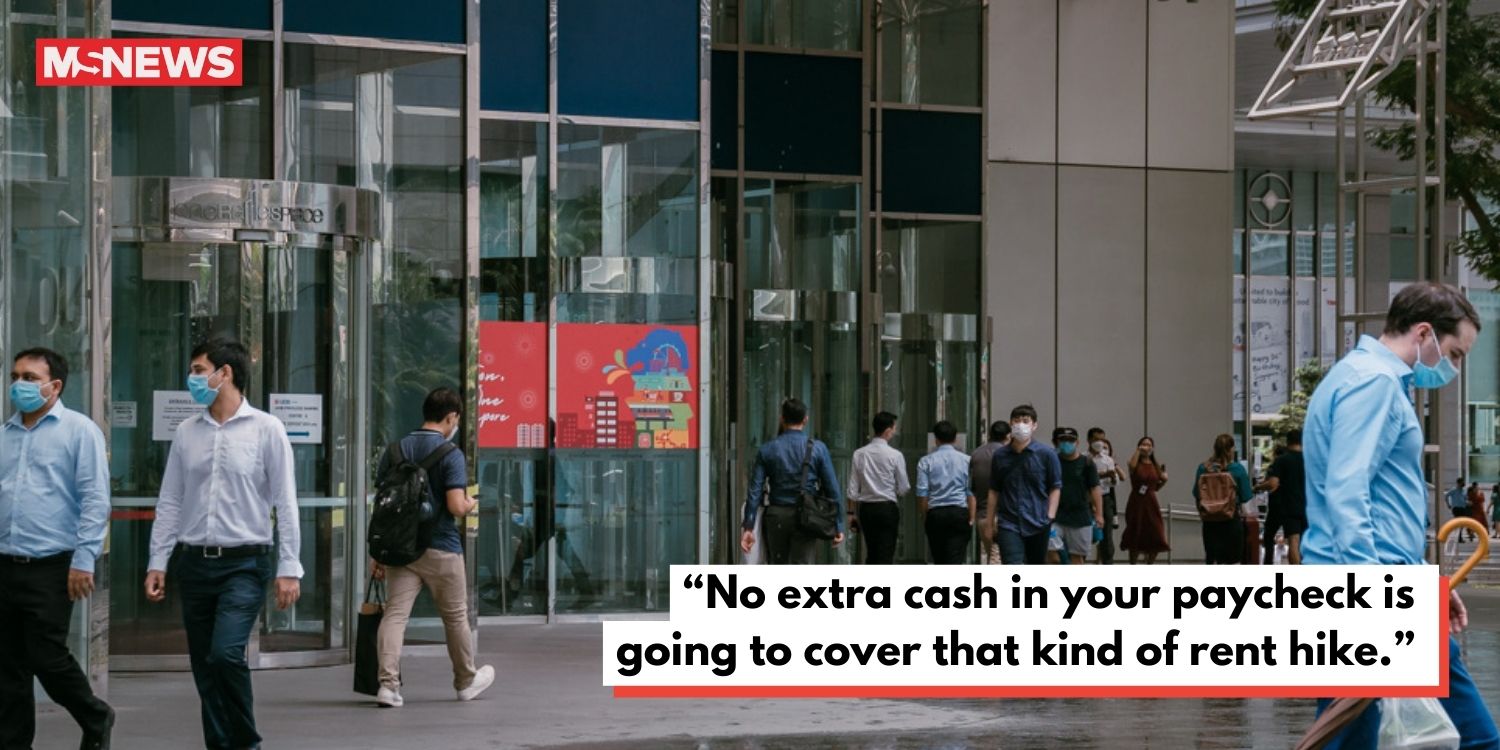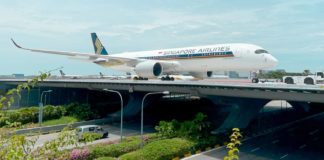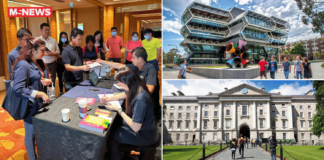Singapore too expensive: Expats finding it hard to live here, making preparations to leave
Singapore has always been deemed an attractive spot to live in, thanks to its low crime rate, efficient transport system, modern amenities and well-developed infrastructure.
However, one aspect has always been a bugbear among both locals and foreigners. This, naturally, is the high cost of living in the country.
While inflation in Singapore has largely moderated, prices are still above pre-pandemic levels, according to The Straits Times. They are expected to remain elevated in 2024.
Everything seems alarmingly pricey these days, from consumer goods to transportation and food. Ya Kun Kaya Toast, for example, hit the news for increasing some of its set prices by 12.5%.
Ya Kun Kaya Toast Apparently Increased Prices Of Set Meals By S$0.70, Customers Surprised
Locals do enjoy some subsidies in essential areas, and the Government has been doling out cash, vouchers and rebates to help with cost-of-living concerns. However, the same can’t be said for expats, who are feeling the brunt of elevated prices.
A number of expats MS News spoke to say they are starting to find it costly to live in Singapore.
It seems to be in contrast to several surveys and rankings listing Singapore as an optimal destination to relocate to.
For instance, wealth advisory firm Henley and Partners recently ranked the country as the third best to relocate to.
Regardless, some expats have already left, or are in the process of doing so.
Experts in the industry have also pointed to figures that support a rising air of dissatisfaction among expats in light of spiking costs in the Lion City.
Skyrocketing of prices in post Covid-19 era
Mr Benedikt Becker, 34, who’s marketing director at analytics company Shikenso Analytics, is one person who left.
Speaking to MS News, he said his decision to leave Singapore wasn’t one he made lightly.
The German national relocated to the city in mid-2020, but left in the summer of 2022.
“I decided to leave because I wanted to try a new job,” he said, now living in Kuala Lumpur.

Image courtesy of Benedikt Becker
“Things were getting expensive, and I was super curious about what it’s like to live in other places in Southeast Asia.”
Mr Becker was working as a Singapore and Malaysia country manager for a marketing agency at the time.
During his stay, he lived in a one-bedroom unit in a condominium in the Katong area. He said 20% to 30% of what he made was spent on rent.
His decision to leave was mirrored by his peers as well.
“I’ve got a bunch of old work buddies and expat friends who’ve already packed up and left Singapore,” he told MS News. “The main thing that got to them was how expensive it’s been getting to live there.”
Mr Becker explained that after the pandemic, prices began skyrocketing as the situation returned to status quo. He added:
Rent was the craziest. People’s rent went up by like 30% — this also happened in my case — and I even heard about some folks getting hit with a 50% increase!
Indeed, housing costs are a huge challenge. In 2022, CNA reported that rental prices hit a record high, with some forking out up to 70% more in rent.
With only two to three months’ notice from landlords, Mr Becker noted that there was no easy way to deal with escalating rents.
“You could ask for a salary raise,” he said. “But no extra cash in your paycheck is gonna cover that kind of rent hike.”
Expats in Singapore not able to access enough disposable income due to costly living
Another person who’s leaving is a 27-year-old software engineer from India who only wants to be known as Maria.
She has lived in Singapore for the last 14 years. Unfortunately, she will be relocating to New Zealand with her family at the end of this year.
“Despite doing well in [my] career with multiple bonuses and an award, my company had issues with the renewal of visa,” she shared with MS News.
Maria’s employment is set to end with her move to New Zealand.
Many job applications, she added, would result in an immediate rejection before she could even get a call with their Human Resources (HR) department.
She suspected that it could be due to salary requirements for those on Employment Pass being “way too high”, making her a less attractive candidate for firms on a tight budget.
“Life in Singapore is luxurious,” she noted. “[But] it’s too expensive to live here, [you] cannot job hop easily.”
Having stayed in the Punggol and Pasir Ris area with her family, her rental costs per month was around S$1,000 to S$1,300. About 40% of her income goes into managing her expenses, including rental and food.
This was not an issue unique to her situation, she said. Most of the expats she talked to are planning their move out of the country, too.
Expats in Singapore have to tighten purse strings, keep a tight budget
That said, it’s a different matter for Ms Amandine Hoult, a 27-year-old software engineer who has been here for nearly five years.
At present, she lives in a two-bedroom unit in a condominium at Boon Keng with her boyfriend and a flatmate. Previously, all she could afford was a common room in a shared condominium unit.
Rental for the unit costs about S$4,200. Ms Hoult and her boyfriend pay S$1,250 each for the master bedroom, excluding utilities, while her flatmate pays S$1,700 for the common room and private bathroom.
On top of the rent, they share the cost of bills such as utilities, which come up to S$150 each per month.
Ms Hoult said she’s not struggling as much as some other expats, because she’s very particular about her budget.
“I like to control my expenses and keep them as low as possible,” she said. “So actually I’m spending only about 17% of my income on rent and 10% of my income on food.”
She saves “a good 30% of her income”, and admits that she could be saving even more.
However, she acknowledged that it can be easy to lose control of one’s budget, especially for expats in a new environment.
“You should find a balance between getting new experiences and planning for the long-term,” she recommended.
Meanwhile, Mr Max Chernov, 39, a Russian entrepreneur and YouTube content creator who has his own channel about what it’s like to live in Singapore as an expat, moved here about five-and-a-half years ago from Dublin.
His second biggest expense, behind rental, is school fees. Paying for international school for his children costs S$40,000 a year, he pointed out.
As for rent, he pays S$10,000 a month for his three-bedroom unit at the Interlace Condominium, where he stays with his wife, a full-time Google employee, and two children.
Spending on rental and food thus takes up about 30% of his and his wife’s income.
Rising costs for expats a noticeable trend in Singapore
In June last year, ECA International ranked Singapore the fifth most expensive location in the world for expats.
A software firm, it helps companies manage compensation and benefits for international workers.
This was the first time the city had made it into the top five for that particular ranking, ECA International noted.
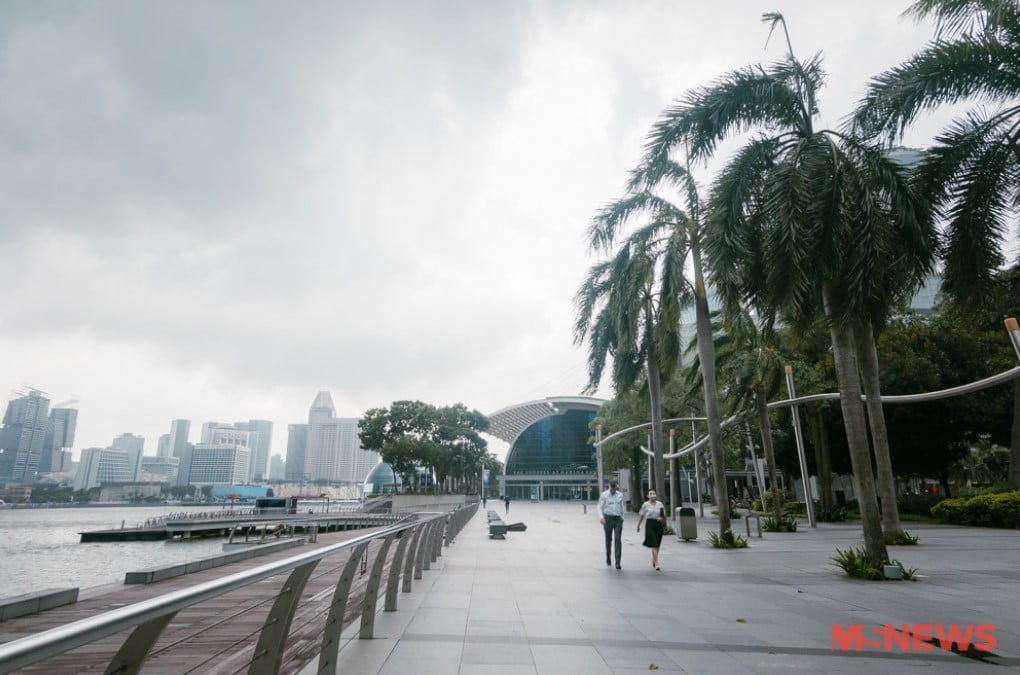
Speaking to MS News, Mr Lee Quane, global head of business development at ECA International, said that the rise of prices in Singapore is exemplified in housing costs and general inflation.
“Our research of trends in accommodation costs, which focuses on districts commonly inhabited by expatriate employees, shows that overall rents have risen by approximately 40% since the start of 2022,” Mr Lee shared.
As for day-to-day living costs, Mr Lee said that Singapore has also witnessed higher rates of increase than many other locations in the Asia-Pacific (APAC) region.
Rates of inflation have also been higher than other locations in the region, such as Hong Kong and Japan, he added.
However, they have not reached as high a level as those witnessed elsewhere in the world, such as in Europe.
Dissatisfaction among expats with spiking costs
InterNations, a global network for expats to connect, shared with MS News that in an insider survey, Singapore ranked last in 2023 among 53 countries when it came to the cost of living.
It conducted the survey with 12,065 expats representing 171 nationalities and living in 172 countries or territories worldwide in 2023.
The network added:
Expats’ satisfaction with their financial situation and the power of their disposable household incomes has taken a dip in recent years.
According to the survey, only 75% of respondents in Singapore agreed that their disposable household income was enough, or more than enough, to lead a comfortable life, down from 87% in 2022.
As for those who agreed it was more than enough, only 42% of respondents said so — down from 59% in 2022.
An expat from the United States (US) told InterNations that costs had spiked to a point where things in their hometown seemed cheaper.
“It costs so much, we can’t do all the things we used to do back home,” they said.
Similarly, Ms Hoult noted that the cost of living should be a consideration for expats moving to Singapore, especially for those with children.
“Kids bring huge expenses to families living in Singapore, like schooling fees, tutoring, [helpers],” she explained.
Swiss content creator and social media coach Marion Müller, who moved to Singapore from Switzerland, told MS News that she had a difficult time relocating to Singapore with her then-boyfriend as well.
“I think [Singapore] used to be very expat-friendly when I talked to other expats living here, but this has changed after Covid-19,” said the 28-year-old who stays in a flat along Orchard Road with three other tenants.
“Singapore has become very protective over their local people.”
Singapore ranks as top relocation spot despite rising costs
In January 2024 this year, ECA International published an article noting that Singapore had retained its pole position as the top destination within the Asian region for expats to live in for the 10th consecutive year.
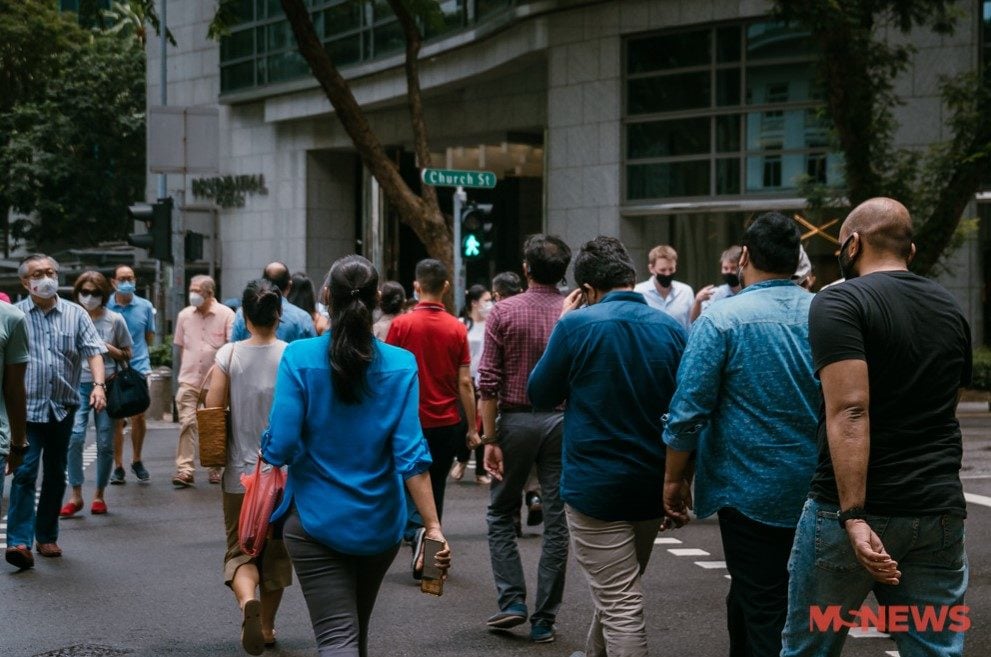
The article pointed out that factors such as a low crime rate and minimal socio-political tensions played a part in increasing its attractiveness for expats.
“Our assessment shows that Singapore offers the best living conditions in Asia for expatriates,” Mr Lee said.
Language learning platform Preply also conducted a study in 2024, the results of which showed that Singapore topped the list of the best Asian cities for expats to relocate to, coming out third overall.
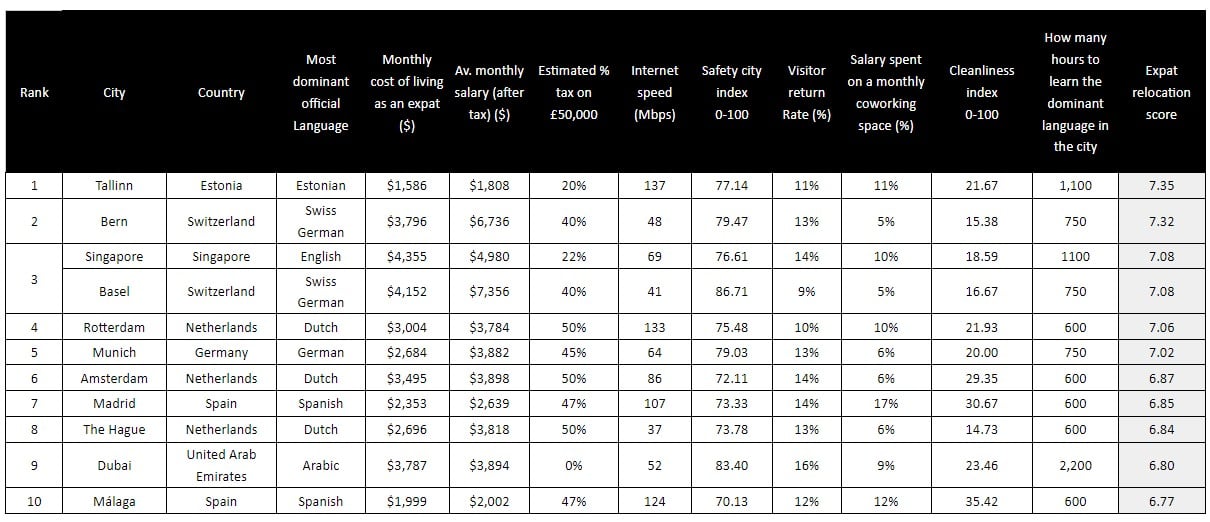
Image courtesy of Preply
The study noted that the country’s living costs are significant, averaging roughly S$4,355 per month. Even so, Preply described Singapore as an “ideal option” for expats, due to factors such as cleanliness and safety.
The desirability of Singapore as a prime location for expats to move to is also reflected in the survey conducted by InterNations.
In 2023, 68% of respondents said they were generally happy with life in Singapore. While it constitutes a drop from 73% in 2022, it still makes up a majority of respondents.
Cost of living not sole factor for expats choosing to leave Singapore
Mr Lee shared that for expats leaving Singapore, the cost of living is just one consideration among others.
“Rising costs are indeed one factor if expatriate salary packages have not kept pace with living costs,” he said.
“However, any departures may also be due to other factors such as Hong Kong’s re-opening post Covid-19.”
Mr Lee was referring to news last year of expats relocating from Singapore to Hong Kong.

Source: Ruslan Bardash on Unsplash
This was a phenomenon which South China Morning Post reported on.
Some of them, Mr Lee said, had moved to Singapore from Hong Kong in 2022. They may have thus simply chosen to return.
“The natural conclusion of many expats’ employment contracts may also have been a factor,” he said. A possible reason, for this, he added, was recent increases in the qualifying salary for certain categories of work permits.
“There may be a fall in new arrivals,” Mr Lee said. “But the cause may be immigration restrictions rather than… a lack of willingness for people to come to work here.”
Uncertain whether costly situation for expats will ease in 2024
It remains to be seen whether more expats in Singapore will flee as costs continue to shoot up — and how great an impact it would be.
In Mr Becker’s opinion, there is a possibility of even more expats exiting Singapore than before.
“Travelers sometimes call Singapore “Asia for Beginners” because it’s safe, great for families,” he said. “There are tons of chances to meet people and find good jobs. Lots of big companies have their APAC headquarters there.”
But for someone like me, no wife or kids, and I can work from anywhere, it makes me wonder, why [stay] in Singapore?
He pointed out that other countries in the region were in the process of rolling out policies to assist expats.
This included new remote work and digital nomad visas to enable employees to work from anywhere.
In comparison to other countries, however, there is still reason to believe that Singapore has a fighting chance when it comes to attracting expats.
Studies by ECA International and Preply have shown that the country still holds a fair amount of allure for those looking to relocate.
Mr Lee also noted that the cost of living crisis wasn’t unique to just Singapore, adding: “All locations experience inflation.”
Ms Hoult said not all is lost — there are ways to manage the costly situation for expats in Singapore, such as changing one’s lifestyle and securing a good relocation package.
“Habits, such as driving and food… are things that cost a fortune in Singapore,” she said.
“But if your relocation package allows you to have a comfortable life, for sure Singapore is the best destination I can think of.”
“The work environment is quite stable and you get a work-life balance,” she added. “Really, you have nothing to be worried about when living in Singapore.”
Have news you must share? Get in touch with us via email at news@mustsharenews.com.
Featured image by MS News.

Drop us your email so you won't miss the latest news.
